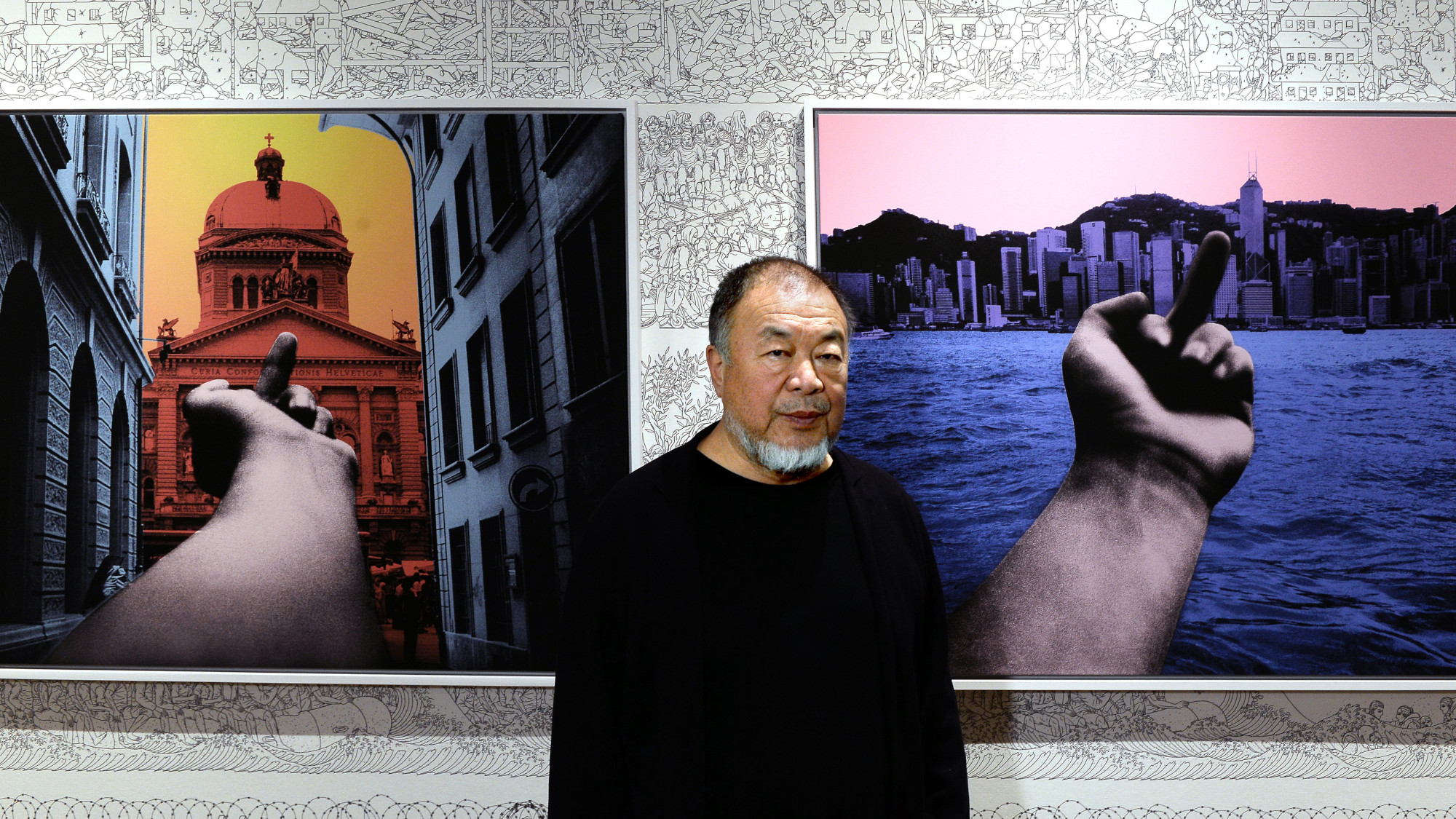Art review: Ai, Rebel: The Art and Activism of Ai Weiwei
Seattle Art Museum, through Sept. 7

A free daily email with the biggest news stories of the day – and the best features from TheWeek.com
You are now subscribed
Your newsletter sign-up was successful
"Ai Weiwei's work thinks big: big politics, big history, big issues, big materials," said Charles Mudede in The Stranger. So it's fitting that the first U.S. exhibition of Ai's art in more than a decade is also the biggest yet. More than 130 of the Chinese artist-activist's works are on display at the Seattle Art Museum sites and two satellite locations, and it's impossible to view them without considering the 67-year-old's long battle against all forms of contemporary authoritarianism and the Chinese state's brutal response. Since Ai was arrested and beaten in 2009, then jailed again under suspect justifications in 2011, he has continued creating and, as always, he "remixes our globalized culture," combining the materials of mass production, motifs from art history, and personal emotional responses to challenge power structures and how we view them.
Ai will use "almost anything as a medium for making a point," said Michael Janofsky in The New York Times. For 2009's Snake Ceiling, he famously hung 857 green-and-white backpacks in a serpentine overhead configuration to commemorate the thousands of schoolchildren killed in a 2008 Sichuan province earthquake, though the state failed to count them. Also here is a 1-ton pile of the hand-painted ceramic sunflower seeds that he had artisans create as a way to push back against depersonalization. Recently, Lego bricks have become a favored Ai medium. Appearing at the Seattle Asian Art Museum is Ai's larger-than-life 2022 Lego reproduction of Claude Monet's famous Water Lilies #1. In the main exhibit stands his massive Lego reproduction of the first page of Robert Mueller's report on Russian meddling in the 2016 U.S. presidential election. From a distance of a few steps, "it's an easy-to-read pixelated facsimile." Move closer and the image becomes illegible, suggesting "the fragility of democracy."
As an example of art's power to upend political realities, however, a work like that "borders on farce," said Louis Bury in Art in America. Ai, who currently lives as an exile in Europe, seems to have concluded that bearing witness to government malfeasance is necessary but insufficient. Visitors to this show are greeted by his huge 2020 neon sign that spells out a four-letter expletive that starts with F. Nearby is a bronze arm with its middle finger extended, and the message is a mix of defiance and embittered resignation. More agonizing is 81, Ai's re-creation of the solitary confinement chamber where he spent 81 days under arrest in 2011. "Standing inside the sculpture feels like being a rat plopped down in a maze, and grasping that you have limited control over your fate." Though the curators probably intend for viewers to leave the show inspired to fight oppression, "that sense of curtailed agency forms the retrospective's heart of darkness."
The Week
Escape your echo chamber. Get the facts behind the news, plus analysis from multiple perspectives.

Sign up for The Week's Free Newsletters
From our morning news briefing to a weekly Good News Newsletter, get the best of The Week delivered directly to your inbox.
From our morning news briefing to a weekly Good News Newsletter, get the best of The Week delivered directly to your inbox.
A free daily email with the biggest news stories of the day – and the best features from TheWeek.com
-
 Why are election experts taking Trump’s midterm threats seriously?
Why are election experts taking Trump’s midterm threats seriously?IN THE SPOTLIGHT As the president muses about polling place deployments and a centralized electoral system aimed at one-party control, lawmakers are taking this administration at its word
-
 ‘Restaurateurs have become millionaires’
‘Restaurateurs have become millionaires’Instant Opinion Opinion, comment and editorials of the day
-
 Earth is rapidly approaching a ‘hothouse’ trajectory of warming
Earth is rapidly approaching a ‘hothouse’ trajectory of warmingThe explainer It may become impossible to fix
-
 Kia EV4: a ‘terrifically comfy’ electric car
Kia EV4: a ‘terrifically comfy’ electric carThe Week Recommends The family-friendly vehicle has ‘plush seats’ and generous space
-
 Bonfire of the Murdochs: an ‘utterly gripping’ book
Bonfire of the Murdochs: an ‘utterly gripping’ bookThe Week Recommends Gabriel Sherman examines Rupert Murdoch’s ‘war of succession’ over his media empire
-
 Gwen John: Strange Beauties – a ‘superb’ retrospective
Gwen John: Strange Beauties – a ‘superb’ retrospectiveThe Week Recommends ‘Daunting’ show at the National Museum Cardiff plunges viewers into the Welsh artist’s ‘spiritual, austere existence’
-
 Bad Bunny’s Super Bowl: A win for unity
Bad Bunny’s Super Bowl: A win for unityFeature The global superstar's halftime show was a celebration for everyone to enjoy
-
 Book reviews: ‘Bonfire of the Murdochs’ and ‘The Typewriter and the Guillotine’
Book reviews: ‘Bonfire of the Murdochs’ and ‘The Typewriter and the Guillotine’Feature New insights into the Murdoch family’s turmoil and a renowned journalist’s time in pre-World War II Paris
-
 6 exquisite homes with vast acreage
6 exquisite homes with vast acreageFeature Featuring an off-the-grid contemporary home in New Mexico and lakefront farmhouse in Massachusetts
-
 Film reviews: ‘Wuthering Heights,’ ‘Good Luck, Have Fun, Don’t Die,’ and ‘Sirat’
Film reviews: ‘Wuthering Heights,’ ‘Good Luck, Have Fun, Don’t Die,’ and ‘Sirat’Feature An inconvenient love torments a would-be couple, a gonzo time traveler seeks to save humanity from AI, and a father’s desperate search goes deeply sideways
-
 A thrilling foodie city in northern Japan
A thrilling foodie city in northern JapanThe Week Recommends The food scene here is ‘unspoilt’ and ‘fun’